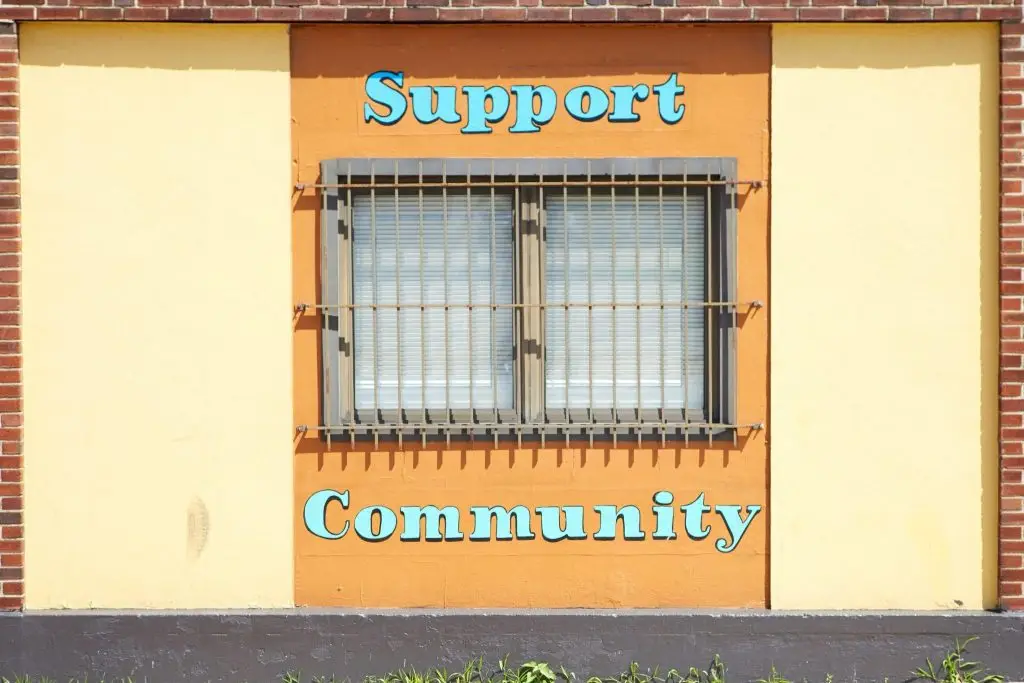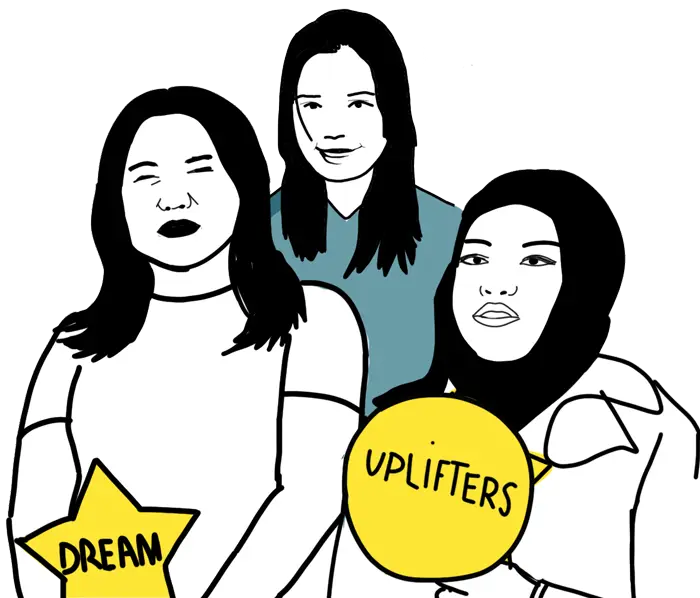What COVID-19 Is Doing Around The World
It seems everything we see, hear, read and do revolves around COVID-19 these days.
Although many companies cannot operate because of lockdowns, we also see new innovative businesses offering solutions to the problems people are facing.
People have started making or selling masks.
Schools are pivoting from classroom training to online learning.
Even investors are jumping into the stock market now, hoping to pick up some bargains.
Being a migrant domestic worker, you are already very good at adapting. You made the difficult situation to move abroad, leaving your family and children behind and had to adjust to living in a foreign country, in your employer’s home. So I know you are well prepared!
Every Crisis Ends Eventually
We are a resilient species.
That’s how we’ve survived for hundreds of thousands of years.
I know this crisis will pass. Just like all the other crises have from the first century.
Yes, we’ve had financial crises since the first century.
Since the 1970s, we’ve seen one every 10 years, almost like clockwork.
And after each one, we recover.
But it’s just not so easy when we’re right in the middle of one, is it?
This health and economic crisis has led to deaths, job loss, salary cuts, major life adjustments and plenty of uncertainty for all of us.
COVID-19 has forced us to innovate and entirely change our ideas of how we work and live.
We’re All In This Together
Besides the health risks that we are now subjected to, many of us are facing imminent job loss, salary cuts and potentially major lifestyle adjustments.
Remember though, it’s not just you who’s facing these fears and uncertainties.
Your bosses are facing them too.
So are their bosses. And their bosses’ bosses.
The good thing is, we’re in this together.
And the best thing we can do is to get through this together.
4 Common Financial Challenges Most People Will Face And What You Can Do About It
Here are four common challenges you may be facing.
- Loan Default
If you’ve got loans, the biggest worry is how you’re going to make your monthly payments now when you or your family’s sources of income could potentially be cut off.
You’re likely to feel the stress of diminishing income and how you’re going to pay for you and your family daily needs because they can’t get to work or can no longer get work.
Check if you can get deferment on loans.
Loan deferment is where you can ‘suspend’ your monthly loan repayments for a period of time and resume repayments when your income stabilizes again.
The governments in some countries have offered such an agreement because they know that many people are losing their jobs or finding it difficult to make their monthly loan repayments due to COVID-19.
If your loan is a secured loan such as a home mortgage applied through a bank, then you need to check with your bank about how to apply for such a deferment.
Different countries may have different banking regulations about loan deferment.
Because you are basically ‘suspending’ or delaying your loan repayment for the next few months, this may affect your overall outstanding loan amount.
Banks make money by charging an interest amount on the money they lend you.
By allowing you to suspend repayment, they stop collecting any interest during that suspension period.
When you resume your repayments, they may add this delayed interest amount to your total outstanding loan amount. It means you will have to pay more interest in the end.
So it’s best you check the exact details of the loan deferment and make sure you understand what deferring your loan repayments will mean for your outstanding loan when you resume your repayments.
If you’ve taken on unsecured loans like credit card or personal loans, talk to the lender to see if there are any other alternatives to work out a mutually acceptable repayment schedule.

- Lack of Cash Flow
You may find your cash flow is affected during this time because you need more upfront cash.
For example, your family may need more grocery budget to stock up essential food and supplies to tide them over the lockdown period where movement is restricted.
Unfortunately, many people are living paycheck to paycheck and it can be difficult to come up with a big sum of money on short notice.
If you find yourself in this situation, see how you can reduce your other expenses to free up cash for essentials like food and electricity.
Now is really the time to be clear about what’s a need versus what’s a want.
Needs are what you need for daily living, like food, water, shelter and basic essentials.
Wants are the things that are ‘nice to have’ but not necessarily required for your day-to-day living.
Everyone’s needs and wants are different, and it’s sometimes tempting to say you need something when it’s really something you want and can do without for now.
Remember though, needs include expenses that help you make money. For example, you may need to spend money to get some raw materials to make something to sell. The money you spend on those raw materials will help you generate more money and hence becomes a need.
On the other hand, if those raw materials are for your entertainment purposes to help you or your family get your mind off your current situation and don’t help generate income or create opportunities to earn money, then it’s probably a want.
Cut on ALL your wants expenses right now. It’s only temporary, so do everything you can to defer these.
Are there people who owe you money? This would be a good time to ask for their repayment.
Although, if they’re in a similar situation as you are, it could be challenging.
They may well approach you to negotiate deferment on repayment as we discussed in point 1.
Is there some way you can find some arrangement?
Do your friends have something you need that you can offer in exchange?
Think beyond cash and explore services and products you can offer each other.
This is a time for us to get creative, band together and help each other get through the crisis.
- Loss of job or salary reduction
Remember that your employer may similarly be facing financial struggles themselves. He may have to terminate your contract or renew with a lower salary or fewer benefits.
Think ahead. Are you ready to accept a salary reduction or do you prefer to change employers? If you are happy with your current job situation, it may be worth thinking about it twice. It’s not a good time to be unemployed for anyone. Moreover, visa and contract processing is slightly more complicated and takes longer at the moment.
If you choose or decide to change employers make sure to choose an ethical agency and preferably one that won’t charge you any fees like We are Caring in Singapore or Fair Employment Agency in Hong Kong. You can also register your profile on platforms like Helper Choice, Helper Place or Anisya.
- What Else Can You Do If You’ve Exhausted Your Options
Find out if your government is offering any assistance to you and your family during this time.
If you are working abroad and not eligible for government support because you’re not a citizen in your host country, check if you or your family back home can qualify for government support in your home country.
Research and tap on every program you can qualify for.
This is not a time to feel ashamed that you need government support.
You’re a contributing member to the economy wherever you work so be proud and encouraged that you’re doing the best you can for your employer and your family.
Stay updated on any support packages your government may be offering, but always verify the sources of such information is official.
The COVID-19 crisis has also seen many scams bubbling to the surface as people resort to crimes and prey on your desperation to get access to your money.
Two Things You Should Have Done To Avoid Your Current Financial Situation – Luckily You Can Still Do These Now
- Get A Financial Education
Financial distress can really affect every aspect of our well-being like our mental, emotional and physical health.
According to Harvard Medical School, such chronic stress like those caused by financial hardship can contribute to high blood pressure, promote the formation of artery-clogging deposits, and causes brain changes that may contribute to anxiety, depression, and addiction.
It may also contribute to obesity because people eat more when they’re stressed or because they exercise and sleep less.
One simple way to experience financial wellness is to get yourself a financial education.
Unfortunately, many of us didn’t receive a proper and holistic financial education when we were growing up. We learned our financial lessons through caregivers, our parents, friends or society.
Although well-meaning, many of them were misinformed themselves.
And even if you taught yourself financial knowledge and content, that doesn’t automatically guarantee you’ll behave in a way that’s consistent with the knowledge you know in your head.
We all know we need to spend less than we make, but most people find this difficult to do.
So learn how to master your financial behaviors and habits so you can be financially well.
When you’re financially well, you have a healthy financial life.
This means that your debts are payable and you have enough emergency savings. You’re well prepared to handle any financial crisis.
This makes you feel good about your financial health now and in the future.
There are many good financial literacy programs and resources you can start tapping into now.
Uplifters provides a free financial literacy program with a unique support group facilitated through alumni via a Facebook Messenger group chat.
This could be the best time to enrol in such a course to help you better manage your money so you don’t end up back in the same financial place next time a financial crisis occurs.
Remember, they will come again in 10 years. Will you be prepared then?
- Emergency Savings
While you get a good understanding of the different components of money management and personal finance, start setting aside emergency savings now.
This crisis should have shown you the importance of setting aside emergency savings.
No matter what income level you’re at, start there.
It doesn’t matter how small the amount is to start. The important point is to just start.
Better still, see if your employer has an arrangement for you to set aside an amount each month that goes straight to your savings account so you don’t even see it or feel it.
The remainder of your salary is then paid to you for your monthly expenses.
If you already have an account to receive your salary, set up an automatic transfer to have a set amount deducted each month the moment you receive your salary and deposited into another emergency savings account.
Then, ensure it’s really difficult for you to access that emergency savings account.
For example, set your emergency savings account with a different bank with no ATM card for withdrawal.
This account is only for real emergencies, like if your income gets cut off or you have a sudden huge medical bill.
Make having emergency funds a priority.
It will bring you relief during a crisis so that you have some space to breathe and figure out your next steps.
When you have that space, your next step is more likely to set you up for success rather than sink you deeper in financial stress like being forced to take on more debt just to survive.
The Secret to Financial Success
Successful people in any area do 2 things differently from the majority of people.
First, they make the decision to have unwavering faith that they have what it takes to achieve their goal.
Second, they make the decision to consistently take action towards their goals.
They don’t stop until they do because they don’t give themselves any other option.
They make the decision to believe that they can achieve their goal and are capable of putting in the effort until they accomplish their goal.
Notice that I say they MAKE THE DECISION.
That’s the first step that anyone can do, regardless of your age, education or income level and whatever ‘failures’ you’ve had in the past.
But not everyone will do that.
And that’s why not everyone succeeds in achieving their goals or getting the financial results they want.
Once you make these two vital decisions to have unwavering faith and put in extraordinary effort and believe you have it in you to achieve it because your potential is limitless, you build the energy and motivation needed to improve your life.
This is what Hal Elrod calls The Miracle Equation in his book of the same name.
Unwavering Faith + Extraordinary Effort = Miracles
But the miracles he speaks of is not the sort that is random and cannot be repeated. Those sorts of miracles are akin to a ‘pray and wait’ approach.
Instead, the miracles he speaks of are repeatable and can be created by you because you know the process of how to create such miracles.
The process is simply to make those two decisions and follow through with them until you accomplish your goal.
There is no other option.
The Most Important Thing To Remember – You Create Your Own Miracles
All successful people made those 2 decisions – whether they were conscious of it or not.
They did not give up but followed their vision as far as they could and doing that allowed them to create extraordinary new realities. A miracle.
You decide what you can or cannot do, not your friends, your family, your parents or society.
You don’t blame external factors, like the economy, the lack of money, time, energy or any other excuse you give.
Instead, you believe in yourself and your own limitless potential.
Seeing others achieve what you dream of is proof that anyone can do the same, no matter their circumstances.
The goal you decide on doesn’t have to be big and world changing.
It can be as big or small, easy or complicated as you like. The key is that it must be important to you because that is what will drive you to achieve it.
What is your motivation for wanting financial wellness and success?
Is it for your kids?
To take care of your elderly parents and siblings?
Or to maintain a quality of life you desire in retirement?
Maybe you just want to have enough money to get married and buy your first house?
Whatever your motivation is, use that to fuel your unwavering faith and extraordinary effort.
Then create your very own miracle.
———-
This article was written by Sharon Sidhu, Founder of Two Point Zero. Two Point Zero offers lessons, tips and practical actions that go beyond just financial literacy and knowledge.
In addition to financial education, Sharon leverages her many years as a human resources practitioner and leadership trainer to help you change your behaviour so you can experience long-term holistic financial wellness.


